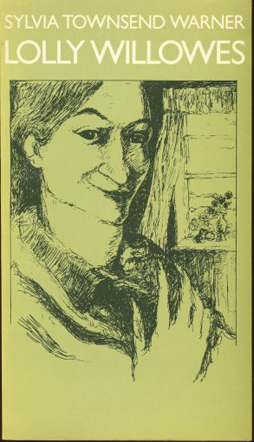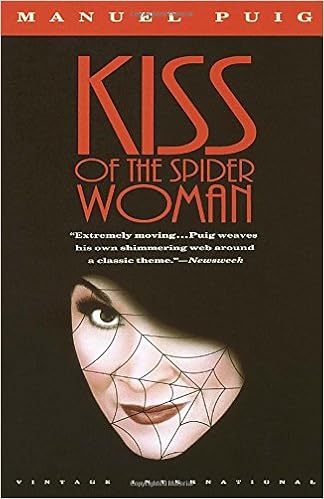I said in my review of Henry IV pt. 1 that the theme of our ninth grade English class is "coming of age." Gosh, I wish I could assign my students Jean Stafford's The Mountain Lion. Here's a book that understands the sheer weirdness and terror of being a kid, and what gets lost in the process of growing up. Its protagonists, Ralph and Molly Fawcett, are two years apart, and at first they are aligned against the forces of conventionality and moralizing represented by their prissy older sisters and prim mother. They get nosebleeds at the same time, and when they're sent home from school, they walk home through the California suburbs spinning fantasies about a demon-like figure called the Skalawag that pursues them home. They're strange kids, but part of being a kid is being strange; it's about saying and doing things that convention will one day repress in you.
Molly and Ralph begin to drift apart after the death of their grandfather. Molly never seems to really grow out of her weirdness, but rather begins to grow into it. She becomes sickly, truculent, and too smart for everyone around her. She writes poems about gravel. Ralph, on the other hand, gets pulled into the orbit of his uncle Claude, a Colorado rancher whose lifestyle both contrasts the conventionality of his mother's home and epitomizes the image of the masculine adult that Ralph yearns to be. (Ralph's pubescent sexual longings, including for his own sister, riddle him with guilt--and his idolatry of Claude is at least in part a way of sublimating those longings by embracing his maleness.) Claude himself is obsessed with hunting a mountain lion near the ranch, but Ralph quite Oedipally decides he's going to be the one who finds and kills it first.
There's so much going on in The Mountain Lion I want to talk about. Stafford is never afraid to be plainly weird, and somehow the weirdness always works because it's believable, when attached to Ralph and especially Molly. But it also captures something ineffably true about childhood. Like the questions Ralph demands of his grandfather:
Ralph had felt compelled to force him to talk and so he began to ask questions. Was it true that if you swallowed a lemon seed a lemon tree would grow in your stomach? Did he like Post Toasties? Had he ever seen a buffalo, not in a zoo? Did he have very many dreams? At first Grandpa answered briefly, but not unkindly, but then suddenly he jabbed the ferrule of the shillelagh into the ground and said sharply, "Dammit, lad, can't you see I've got something on my mind?"
Or this associative riff that seems to convey a great deal about Molly's mind:
Once Molly almost cried when they had stopped at a town called Blackriver and a man with a bandanna around his neck looked right in the window at them and then turned and spit tobacco juice at a cat. She felt the same surprise and anxiety as she had one morning when she woke up and saw a grasshopper on her pillow, looking at her.
And occasionally it takes a dark turn, as when Molly, deep in her psychic rivalry with Ralph, pours acid on her hand, scarring herself permanently:
There was a test tube marked H2SO4 which Molly knew was the most dangerous of them all. That was what was used to make the walnuts pale. Then she held her left hand over a basin and poured the contents on it. At first it did not hurt at all; it stung a little like the liquid soap in the basement at school, but that same blue smoke came up from her hand and almost at once big puffy blisters came out, as white and opaque as mushrooms, and there was a new and terrible smell. The smell, not the blisters, alarmed her, and sent her plunging to the sink where there was a cold water tap. But the more water she allowed to flow over her hand, the bigger the blisters got and when she took her hand away and sniffed at it, the smell was worse than ever. Then she began to cry, not with pain but with terror at this odor of her destruction and she stood in despair in the shadowy room, full of the sound of rain.
Such violence presages the end of the book, which is extremely violent, but too perfect in its horribleness to give away. The mood of the book is so foreboding that I expected the ending to be violent, but I hadn't guessed the precise way in which it would be violent, and so I was both satisfied in my expectations and shocked.
I don't think I could ask my students to read it. They don't have the right distance to understand their own strangeness, or the honesty to grapple with some of the darker feelings that, as adults, we learn to repress and ignore. And they'd find the ending gratuitous. They're not ready to understand themselves that well--but I'm not sure I am either.













